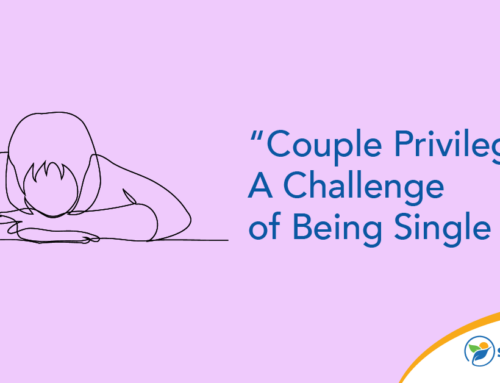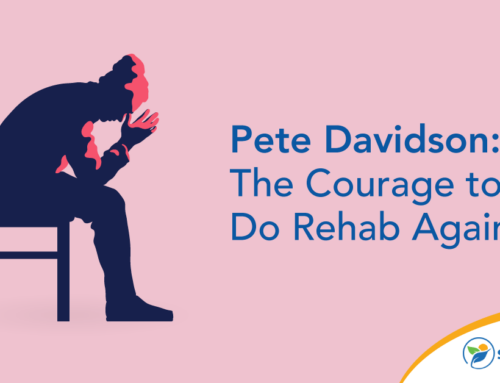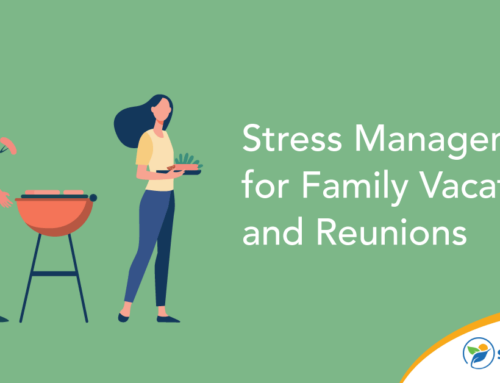It is impossible to go through life without experiencing change. Changes happen within your relationships, work, family dynamics, and more, whether you like it or not. And while some of these changes are positive, others, such as divorce or losing a loved one, are challenging to process. Accepting change is crucial for a healthy mindset. If you are currently dealing with a significant life change, keep reading to discover nine tips on how to accept change gracefully.
Understanding Life Changes
Life changes happen to everyone; they are impossible to avoid. Even if you could keep everything to do with yourself stagnant, you cannot control those around you. So not only are you impacted by changes relevant to you, but you are also affected by the changes that happen to those you love.
Some of the most common life changes people face are:
- Divorcing or breaking up a partnership
- Having children
- Moving
- Starting a new job
- Losing a job
- Struggling financially
- Experiencing medical problems
- Experiencing grief
- Caring for aging parents
- Having traumatic experiences
Coping With Change: The Importance of Accepting Change
So, why does adjusting to change matter? First, there’s the obvious reason: Change is inevitable. Knowing how to cope with change is necessary because it is a process you must go through several times in your life.
Second, change is difficult, especially when unexpected or negative, such as heartbreak, medical conditions, or aging parents. You don’t want to make this challenging time even more difficult by resisting the unavoidable change.
Third, learning to be flexible is essential. If you can learn strategies for accepting change, you will be happier, calmer, and able to adapt. You may even be able to find the opportunities and the good that come out of these monumental life changes. Even a job loss can end up being a good thing when you secure a new job that pays better and makes you happier. With the right mindset, change can (sometimes) be a good thing.
9 Strategies for Adapting to Life Changes
Here are nine strategies to cope with big life changes:
- Acknowledge Change When It Occurs
It might sound obvious, but recognizing the change is important. People often ignore or deny change as it is happening simply because they don’t want to face it. But the longer you put off accepting the change, the more difficult it can become to process.
Acknowledge the change when it occurs. You will be surprised how freeing it can feel. - Find the Positive
A common immediate reaction to change is to feel negative. If you’re content with how things are, change can feel like it’s coming to harm your happiness. But many life changes have positive silver linings.
As change occurs, take a moment to try to find the positive. Journal about the possible benefits of this change to help adjust your mindset.
Of course, this may not feel possible in some scenarios. For example, someone grieving the loss of a loved one isn’t likely to find a positive. That’s okay. Just look for the positive aspects when it’s plausible. - Prepare Yourself
Not all life changes are unexpected. If you’re aware of an upcoming change — such as moving to a new city, trying a new career, or ending a relationship — you can prepare yourself. You know it’s coming, and you can likely take steps to make the transition smoother. The change itself may still feel messy when it’s happening, but you’ll feel better knowing you did what you could to lessen the chaos. - Pace Yourself
Whether expected or unexpected, change can be a lot to deal with. Do not rush yourself through this challenge. No one expects you to immediately process, accept, and adapt to a big life change. Give yourself the time to adjust slowly to your new normal. Every day may feel challenging in the beginning, and that is normal. Over time, each day will feel a little less difficult until you acclimatize entirely. - Lean on Your Support System
Depending on the type of life change you are going through, you may want to lean on friends and family for support. The loved ones in your life can offer advice, listen when you need someone to talk to, or provide comfort during a difficult time. - Practice Calming Techniques
Experiencing a significant life change is a great time to incorporate de-stressing techniques into your daily routine. Do whatever you can to calm yourself and stay grounded as you work through your feelings. Some great calming techniques include walking outdoors, meditating, journaling, and yoga. - Do NOT Self-Medicate
This list mostly consists of proactive steps to accept and adapt to life change, but self-medicating by using drugs or alcohol is one action you should not take. When feeling stressed, it can be natural to want to turn to drugs and alcohol to feel better, and it is a typical response. For example, during the high-stress times of the COVID-19 pandemic, one survey found 23% of adults were drinking more alcohol to cope with their stress.
However, this is a dangerous road to go down. Self-medicating can lead to substance abuse addiction and cause emotional, mental, and physical problems. Try embracing healthy coping strategies instead, such as spending time with loved ones, exercising, and enjoying hobbies. - Avoid Additional Changes
When a life change happens, some people respond with a desire to, “fix it”, or choose to distract themselves with more change. For example, when you are moving to a new city and nervous about what that means, you might consider quitting your job and starting over completely. Or if you are going through a messy divorce, you might be tempted to jump into dating immediately.
Try to avoid the trap of adding more change to your already evolving life. Give yourself the time and space to cope with the current big life change before you add more uncertainty. - Seek Professional Help
Some life changes are too big and complex to go through on your own. If you are dealing with a life change that feels impossible to bear, professional help is an option. A counselor can help you process your emotions and learn coping strategies so you can adapt.
Sunlight Recovery Can Help
If you’re struggling with your mental health, you’re not alone. At Sunlight Recovery, our compassionate counselors can help you overcome the hurdle of any substantial life change. Contact us today to get the support you need.







